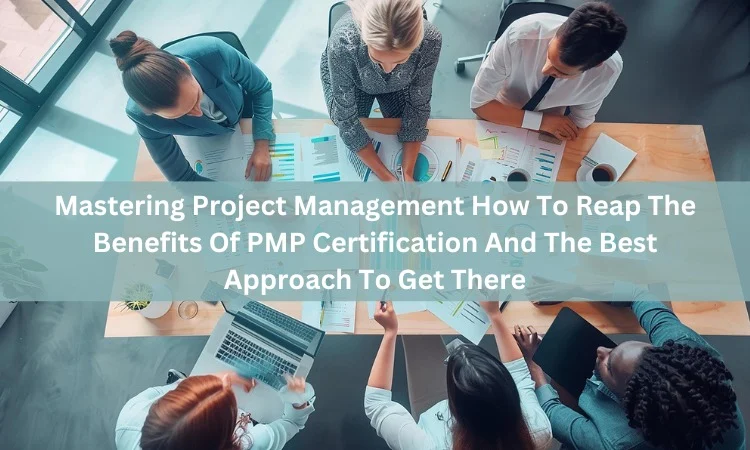Understanding The Importance Of PMP Certification
The PMP certification, offered by the Project Management Institute (PMI), is recognized globally as a standard of excellence in project management. Here’s why obtaining this certification is essential:
1. Enhanced Credibility And Marketability
PMP certification is a testament to your expertise and commitment to the field of project management. It signals to employers and clients that you possess the necessary skills to manage complex projects effectively. This credibility can significantly boost your marketability, making you a preferred candidate for project management roles across industries.
2. Higher Earning Potential
Certified PMPs often enjoy a higher salary compared to their non-certified peers. According to PMI’s Salary Survey, PMP-certified professionals earn up to 25% more than those without the certification. This significant pay bump reflects the value employers place on the knowledge and skills acquired through PMP certification.
3. Global Recognition
The PMP certification is recognized and respected worldwide. Whether you’re seeking opportunities in your home country or exploring international roles, this certification opens doors across the globe. It provides a common language and standard for project management, facilitating smoother collaboration in multinational teams.
4. Improved Project Performance
PMP-certified professionals are equipped with advanced project management techniques and best practices. This expertise leads to more efficient project execution, higher success rates, and better alignment with organizational goals. The certification ensures you are well-versed in the latest methodologies, tools, and strategies.
5. Professional Growth And Development
PMP certification is not just about earning a credential; it’s about continuous learning and professional development. The process of preparing for the PMP exam deepens your understanding of project management principles and hones your problem-solving abilities. It also provides opportunities for networking and knowledge-sharing with other project management professionals.
The Best Approach To Achieve PMP Certification
Earning your PMP certification requires dedication, strategic planning, and a solid understanding of the exam content. Here’s a step-by-step guide to help you navigate the journey:
1. Meet The Eligibility Requirements
Before embarking on your PMP certification journey, ensure you meet PMI’s eligibility criteria. This includes a combination of educational background and project management experience:
- A four-year degree with at least 36 months of project management experience, or
- A high school diploma or an associate’s degree with at least 60 months of project management experience.
2. Gain Relevant Project Management Education
PMI requires candidates to have 35 hours of project management education. At Tromenz Learning, we offer comprehensive PMP training courses that fulfill this requirement and prepare you for the exam. Our courses cover all aspects of the PMP exam content outline, ensuring you have a solid foundation.
3. Study The PMP Exam Content Outline
The PMP exam is based on PMI’s Project Management Body of Knowledge (PMBOK® Guide) and other relevant references. Familiarize yourself with the exam content outline, which includes five domains: Initiating, Planning, Executing, Monitoring and Controlling, and Closing. Understanding these domains and their associated tasks is crucial for success.
4. Develop A Study Plan
Creating a structured study plan is essential to stay on track. Allocate specific times for studying each week, focusing on different domains and topics. Incorporate a mix of reading, practice exams, and interactive learning. At Tromenz Learning, we provide study materials, practice questions, and mock exams to help you gauge your progress and identify areas for improvement.
5. Join A Study Group Or Community
Studying with peers can enhance your learning experience. Join a PMP study group or online community to exchange knowledge, share resources, and gain insights from others who are also preparing for the exam. Engaging with a supportive community can boost your motivation and provide valuable tips.
6. Take Practice Exams
Practice exams are a critical component of your preparation. They help you familiarize yourself with the exam format, time constraints, and question types. Regularly taking practice exams allows you to identify weak areas and refine your test-taking strategies. Tromenz Learning offers a range of practice exams to simulate the real exam experience.
7. Schedule Your Exam
Once you feel confident in your preparation, schedule your PMP exam through the PMI website. Choose a date and time that allows you ample time to review and relax before the exam. Make sure to review PMI’s exam policies and procedures to avoid any surprises on exam day.
8. Stay Calm And Confident On Exam Day
On the day of the exam, ensure you have all necessary documents and arrive at the testing center early. Stay calm, read each question carefully, and manage your time effectively. Remember, your preparation has equipped you with the knowledge and skills needed to succeed.

